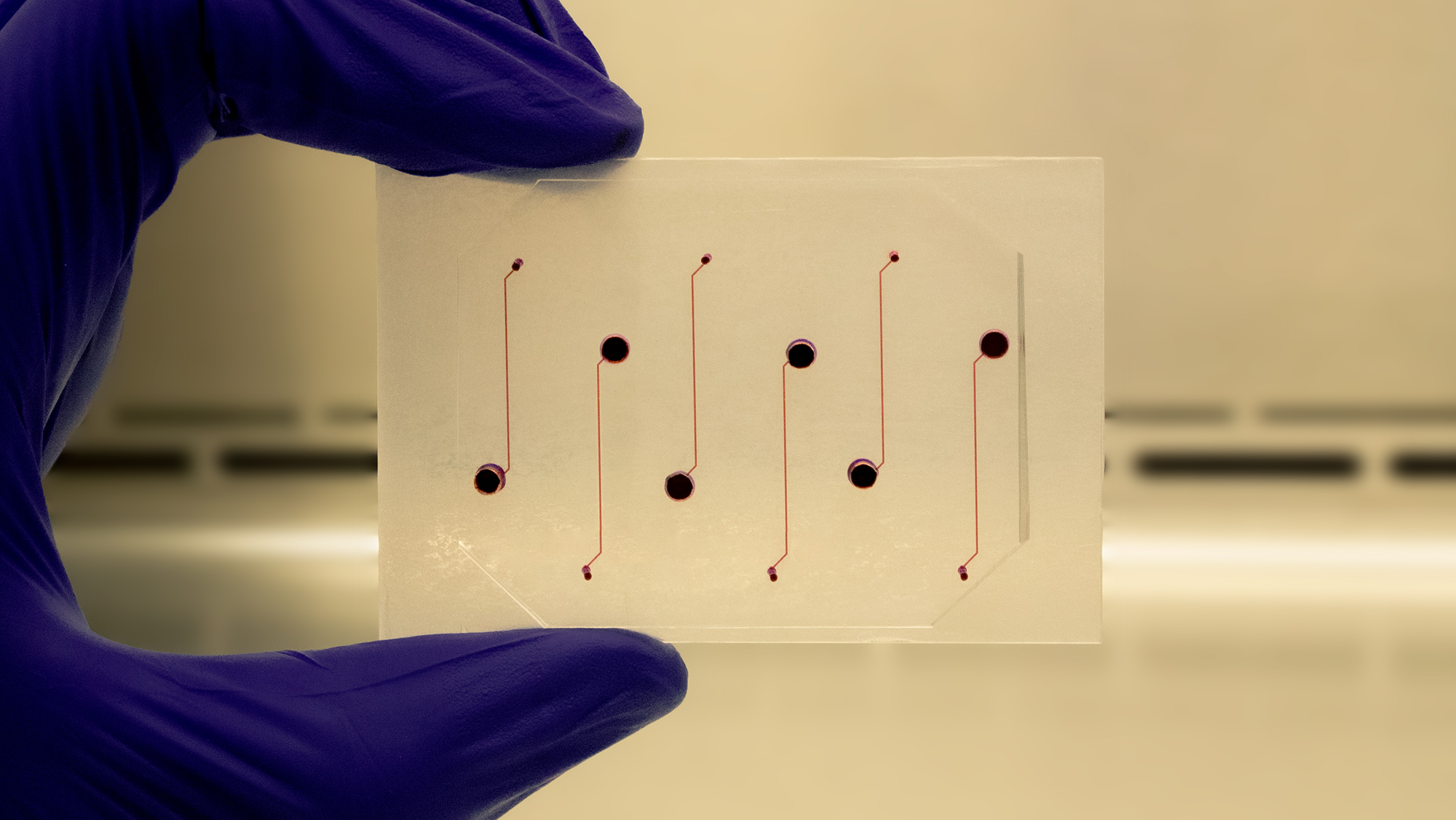Vessel-chip technology may offer a future of more personalized pharmaceutical drug testing, leading to our improved ability to combat disease.
The pharmaceutical drug development and approval process is a multi-step undertaking that requires a plethora of testing before reaching the market. Even then, humans respond differently to drugs depending on their individual bodies and medical needs.
Dr. Abhishek Jain, associate professor in the Department of Biomedical Engineering, and his lab received a grant from Texas A&M Innovation to continue developing an advanced vessel-chip deployment platform for large-scale pharmaceutical testing services that holds promise for personalized and accurate testing.
For the past eight years, Jain and his lab have focused their research efforts on creating blood and lymphatic vessel-chips, which are tissue-engineered microfluidic devices that mimic human circulatory systems and provide a platform for preclinical drug discovery.
Since these systems are built using human cells that may also be derived from individual patients, these chips may lessen the need for animal testing and provide a more physiologically relevant and personalized testing platform before human clinical trials.
“Testing drugs is the ultimate commercial value from this because you’re always interested in solving a disease and curing patients,” Jain said “This system can be used from discovery all the way to the translational pipeline, where you can immediately initiate informed clinical trials of venous, vascular and hematological diseases and know what the outcome on an actual human might be. You can fine-tune your clinical trials or reduce the length of the clinical trials and make them much more efficient.”

